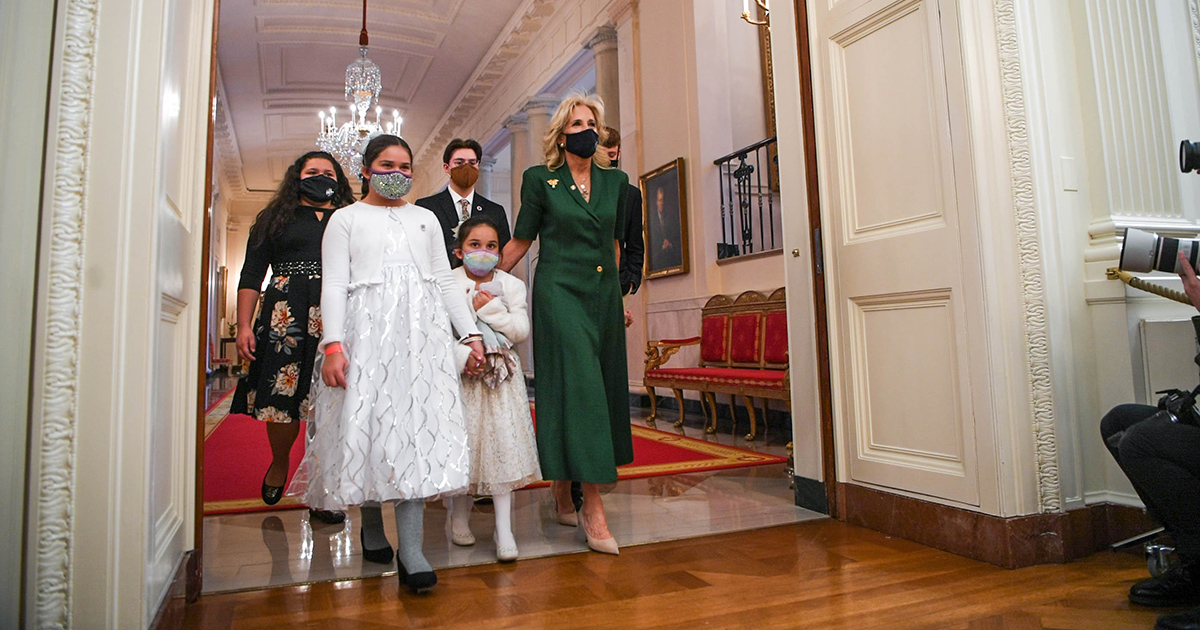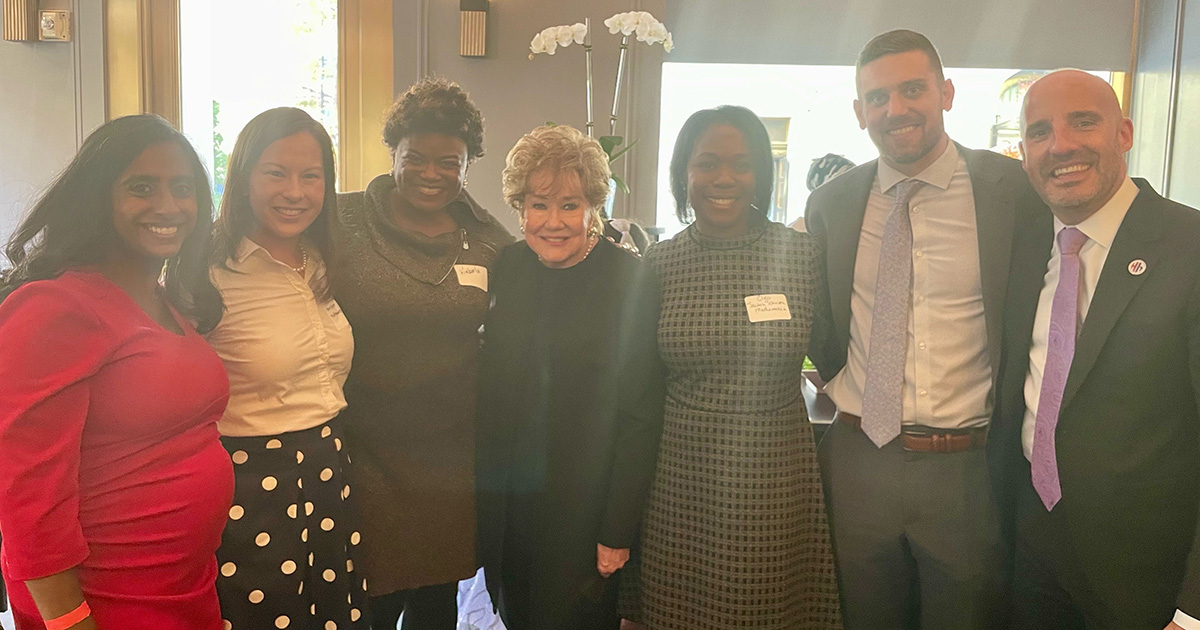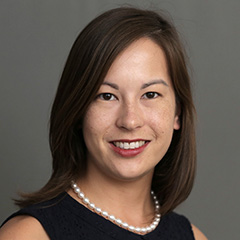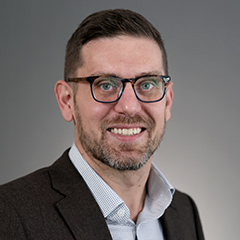Last month, we had a once-in-a lifetime experience as researchers. On the day we released new findings for the Elizabeth Dole Foundation about the unmet needs of 2.3 million Hidden Helpers—children who live with and help care for wounded, injured, or ill service members or veterans, the White House hosted an event to announce a new cross-sector initiative designed to bring awareness to these millions of children and create programs to support them. Although we’ll always remember when First Lady Dr. Jill Biden called our study “groundbreaking,” the most gratifying part of the event was having our findings cited as part of the motivation behind more than 50 public and private sector organizations pledging financial support, along with other programming and resources, for Hidden Helpers.
This work was the perfect intersection of our personal and professional lives. Cleo and Steve are researchers specializing in child development and education, respectively, and Amy is a statistician focused on military health care. We are all spouses of military members, so this work felt personal to us because it gave us an opportunity to improve the well-being of members of our own community. As vast and diverse as it is, the military community can also be unusually close because of the unique experiences we share. Multiple moves, deployments, and moments when the needs of the military come before the needs of the family all shape an experience difficult to understand from the outside. But despite the challenges of military life, we are proud of our spouses’ service and the sacrifices our families have made in support of our spouses’ service. This research was a way to honor families who have given more to this country than most, and hopefully to have a positive impact on their lives.
We are lucky our spouses returned safely from deployments without needing caregiving. Many of the findings still resonated with us because of the unique experiences military life offers. First, many Hidden Helpers and adult caregivers spoke about the isolation they felt because they feared the stigma surrounding their care recipient’s injury, or because their civilian peers simply did not understand military life and their needs at home. When peers do not understand their lived experience, children and caregivers feel isolated from their friends, family, and the greater community. As spouses who have experienced deployments in different stages of our lives, we find few, if any, opportunities to openly talk to our friends and family about our experiences and our needs. In Steven’s case, the ban on open service for those in the LGBTQ community meant his now-husband risked dishonorable discharge from service if they were open about their relationship.
Many folks initially offer “whatever you need” when our spouses first deploy, but it can be tough to actually ask for help. We know from personal experience that families don’t always know what they need or how to articulate it—and even if they did, they may not want to be a burden on their friends and family. These feelings of isolation and misunderstanding can extend to our children, too.
While Amy’s husband was deployed last year, her daughter came home feeling embarrassed because she had burst into tears at school when the teacher played a song she and her father had been learning on the ukulele. Her friends simply didn’t understand the emotional outburst, and she was left feeling like she was the only one missing her dad. Cleo’s family has moved four times due to her husband’s military service, and her daughter’s school staff and friends don’t know they’re a military family or are afraid to ask about it.
Schools have an opportunity to reach a large number of military-connected children, and many districts collect information on military status of children’s families, but do not capture families’ caregiving status. With more information on families’ caregiving situations, schools could support children by developing and implementing supplemental units in health classes or after-school clubs that address the physical and mental health and wellness needs of children from military caregiving homes. Giving children a safe space to honestly express their emotions and needs would benefit the entire family.
Adult caregivers, subject matter experts, and the literature also touch on the parentification of children living in military caregiving homes or experiencing a deployment. Adult caregivers may transfer child-rearing responsibilities to a child or expect the kind of emotional support from the child that would typically be expected from a spouse or other adult. Children from military caregiving homes often respond positively to the challenges posed by caregiving with increased empathy, maturity, and adaptability, yet many caregivers worry about how caregiving can take over at home. One adult caregiver who shared their experiences for the study worried that her daughter isn’t getting to be the child she could be because she’s taking on chores to make the parent’s life easier. Before this research, Amy was unfamiliar with the concept of parentification, but realized she sometimes sought the same emotional support from her daughter that she would normally receive from her deployed husband. She was lucky to have access to the mental health care and support she needed, but many adult caregivers who participated in this research are not as fortunate and expressed frustration that time-consuming online searches for care limits their availability to their families. A system that is easy to navigate and provides a robust set of resources, such as therapy and peer support groups, would make a significant difference for military caregiving families.
The report highlights the strength of the military community and caregiving families, who rarely see themselves as caregivers—not because they are in denial about their role in their care recipient’s recovery and wellness, but because they see their caregiving duties through the lens of family. Although it may be tempting to only see the hardships these families face or the unique circumstances that created these hardships, we think it is important to remember these families are just like other families—they want to do the best they can for their loved ones.
At the White House launch for the Hidden Helpers Coalition, the Elizabeth Dole Foundation announced that more than 50 organizations, pledging at least $3.4 million, were committed to supporting the children of military caregiving families and continued research. We hope this effort will raise awareness and deepen understanding of the needs of caregivers and the children in military caregiving homes, and the commitment of support to Hidden Helpers will lead to measurable progress for these children. The day of the release will always be a memorable one for us. Although reaching the end of a multi-year study that was so important to us is bittersweet, we hope this is just the beginning of long-lasting changes to better understand and support Hidden Helpers.

First Lady Dr. Jill Biden entering the East Room of the White House with a group of Hidden Helpers.





